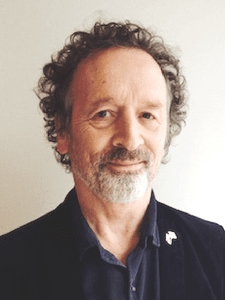by LANDER VAN OMMEN, Chair, Stichting HAI Foundation Board
High medicine prices continue to generate headlines and anger patients, healthcare providers, policymakers, payers and others in many countries around the world. But here at Health Action International, we know that high prices are only part of the story in keeping medicines out of reach for millions people. The entire system of research and development (R&D) and the way in which medicines are continually marketed to patients in some countries are also creating massive barriers. The system is designed to maximise sales volumes rather than patients’ health. This needs to change and it’s our job to ensure it does.
The strong civil society voice of Health Action International and its partners is crucial in the constantly shifting pharmaceutical policy arena. That’s why, in the European Union, we’re continuing to press governments this year to demand greater transparency of medicine prices and pharmaceutical R&D. We’re also expanding our advocacy to warn regulators, such as the European Medicines Agency, about the safety risks of reduced regulatory demands and the need to ensure that health technology assessment remains an effective system for evaluating the impact of newly developed medicines.
In 2017, our ACCISS Study researchers expect to finalise their extensive and novel research into global insulin access barriers—but their work is far from over. By mid-year, they will begin putting their research findings into action by working with stakeholders from the private, public and civil society sectors to develop solutions to the main barriers that they’ve identified.
This year, as a partner in the Health Systems Advocacy Partnership, we also look forward to analysing the results of our research into sexual and reproductive health commodities in Zambia, Kenya and Uganda. We’re continuing to forge strong partnerships with our fellow civil society organisations in those countries, along with other members of the Medicines Transparency Alliance Councils, so the results of our research have the greatest chance of laying the groundwork for stronger health systems policy. We will achieve this by creating innovative ‘dialogue and dissent’ platforms consisting of a variety of stakeholders. The collaborative outcomes of these platforms will help shape policy interventions in a transparent way.
Our snakebite envenoming programme is also becoming fully operational this year, thanks to the financial support from the Dutch Ministry of Foreign Affairs. A new Project Manager will be appointed to lead our advocacy around the price, availability and affordability of antivenom and the education programmes on snakebite prevention. The development of a novel methodology to assess the burden of snakebite envenoming will also begin.
As ever, the Foundation Board is grateful to the dedicated staff and interns at HAI who, every day, offer their vast expertise and unwavering passion to improve access to medicines and rational use of medicines for people around the world. Their contributions this past year have been remarkable and we thank them for their tireless enthusiasm and effort. We look forward to the addition of new staff members for advocacy, communications, and planning, monitoring and evaluation in the coming year that will, no doubt, further expand the team’s capacity and expertise.
Read Lander’s “Looking Ahead” message and key achievements from last year in our 2016 Annual Report and Financial Statements.
